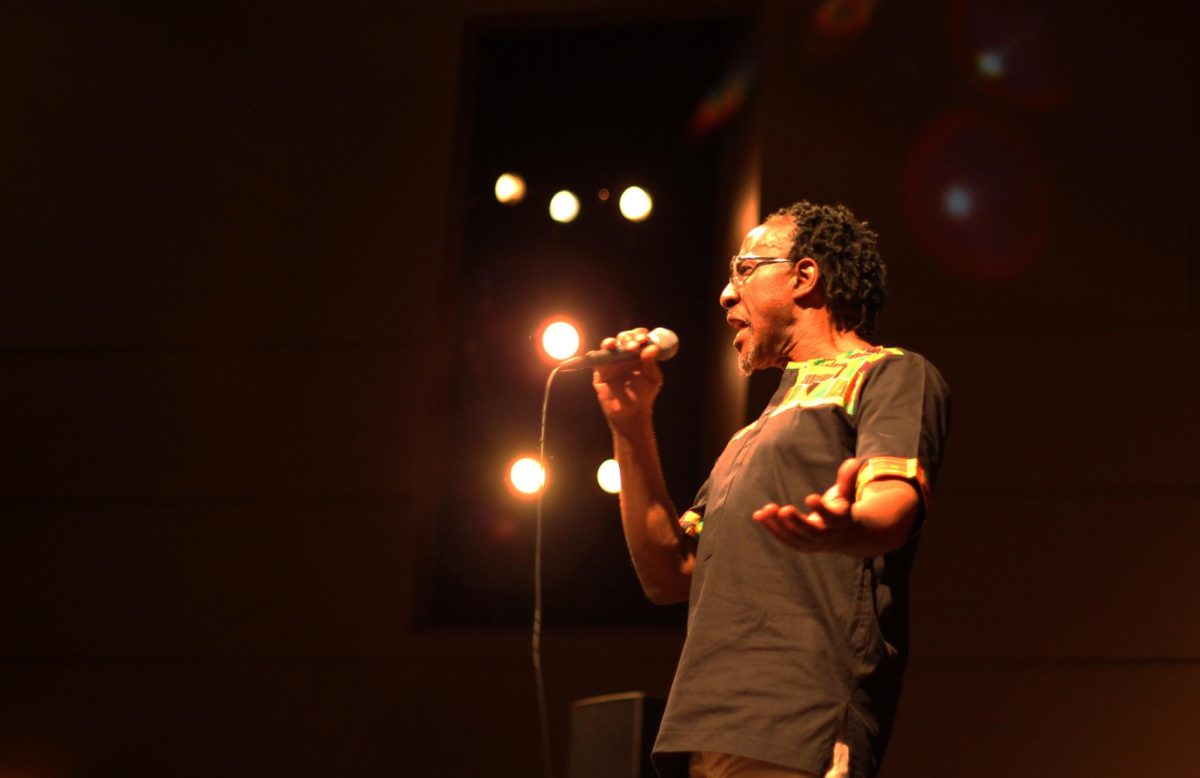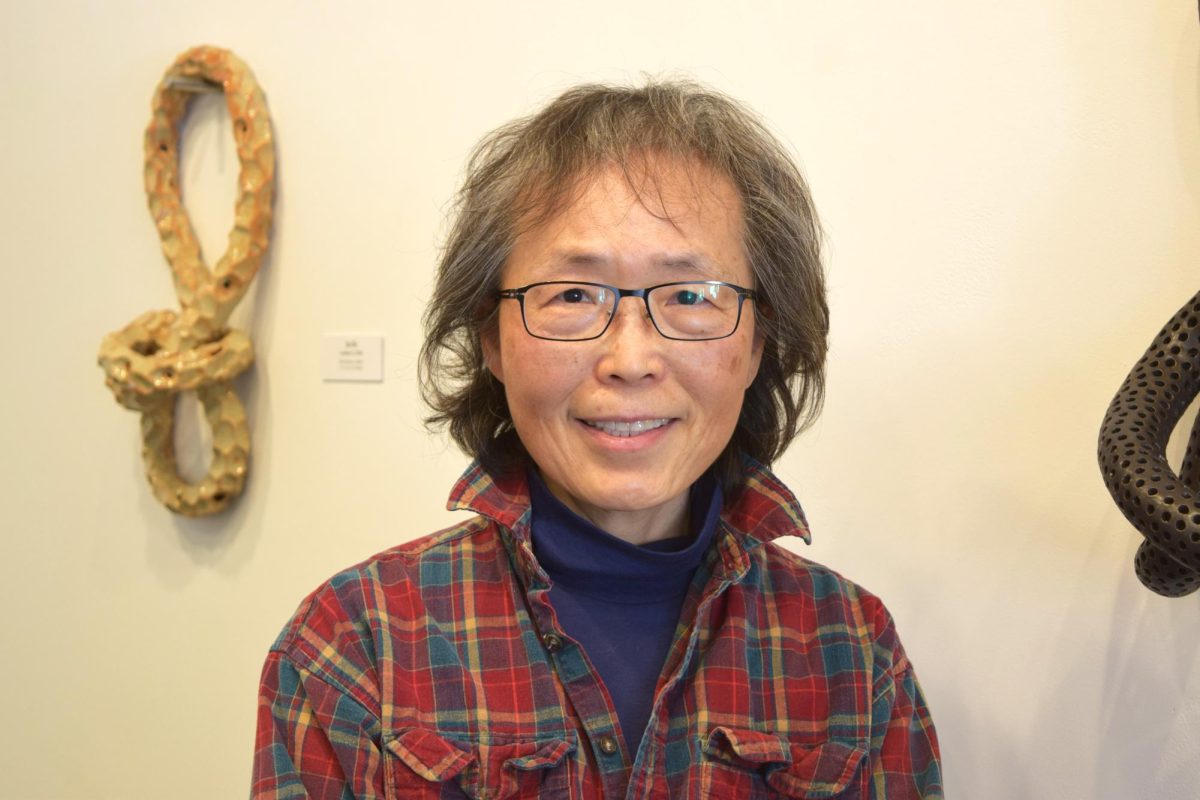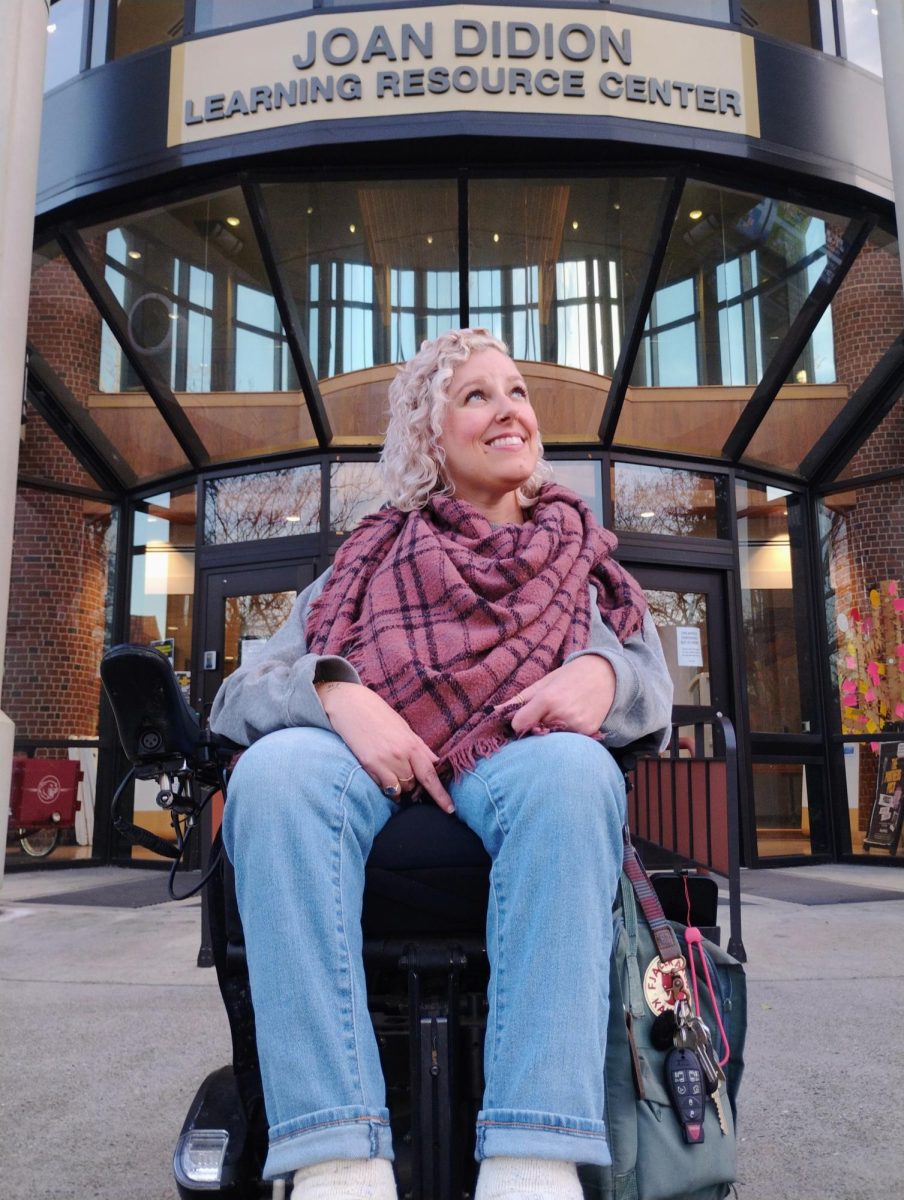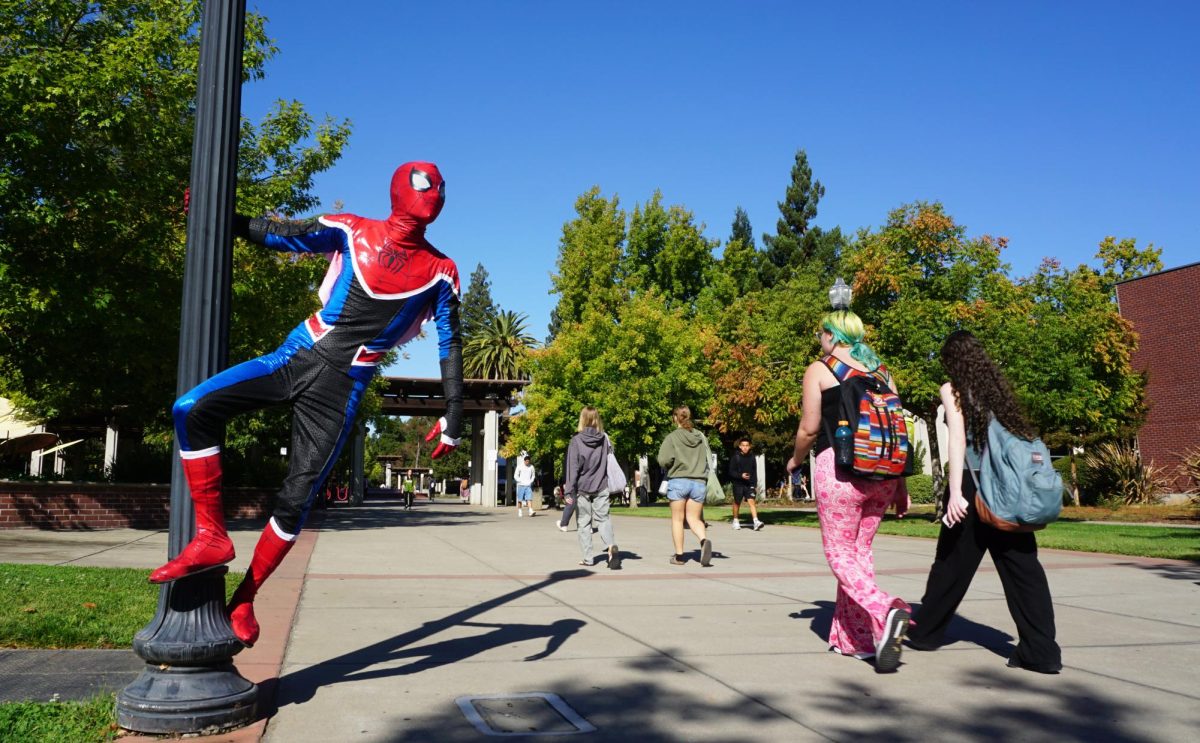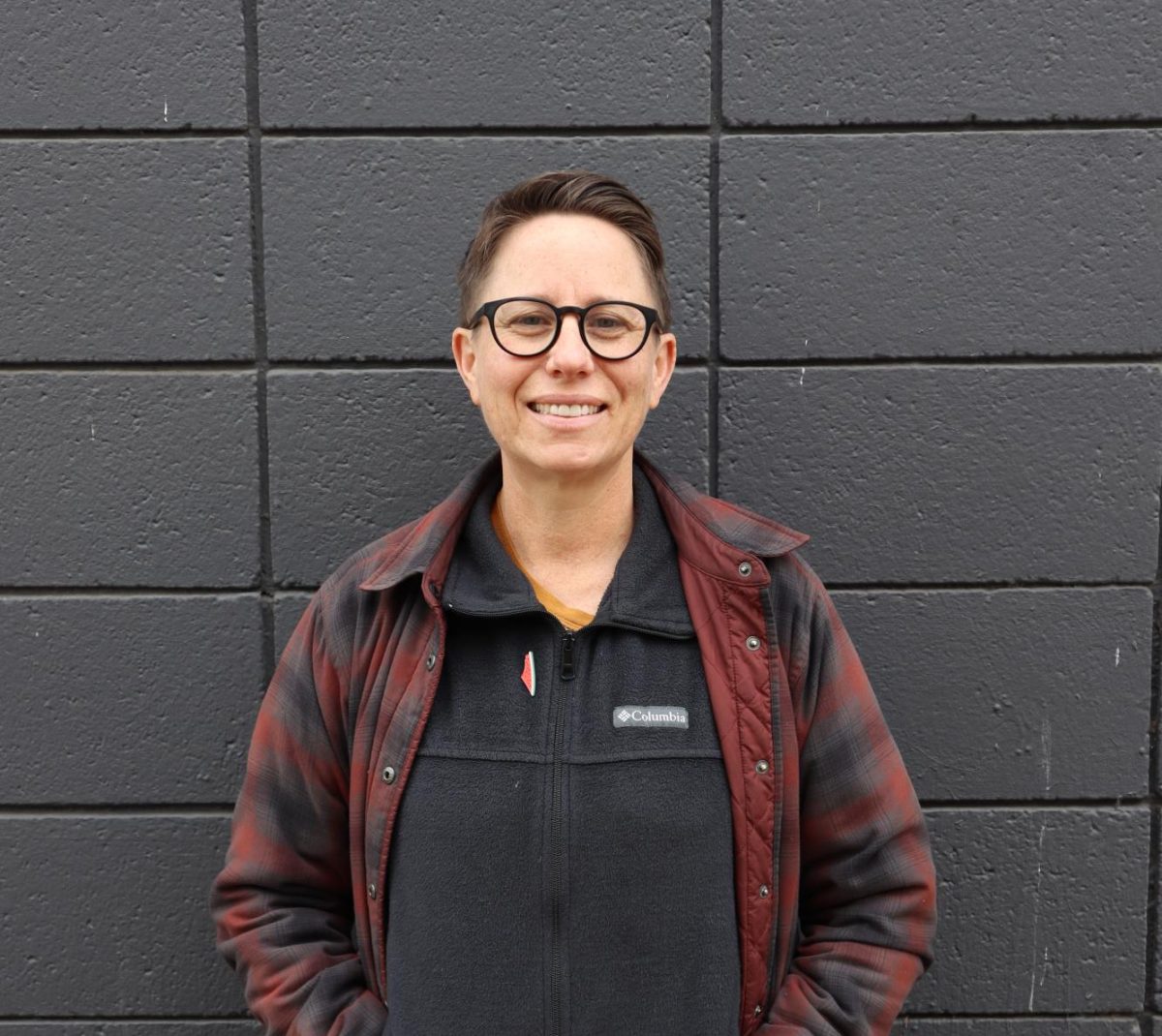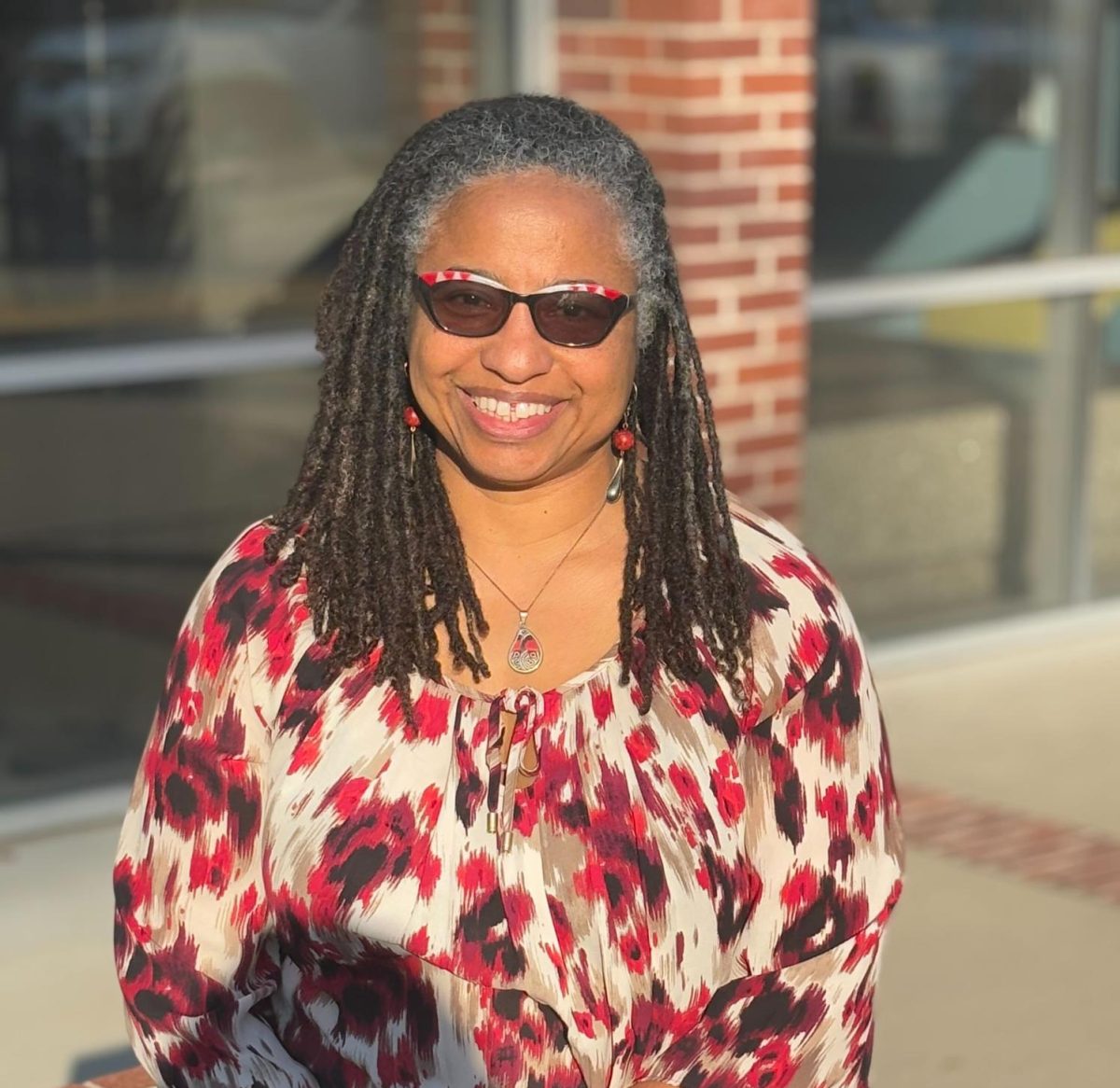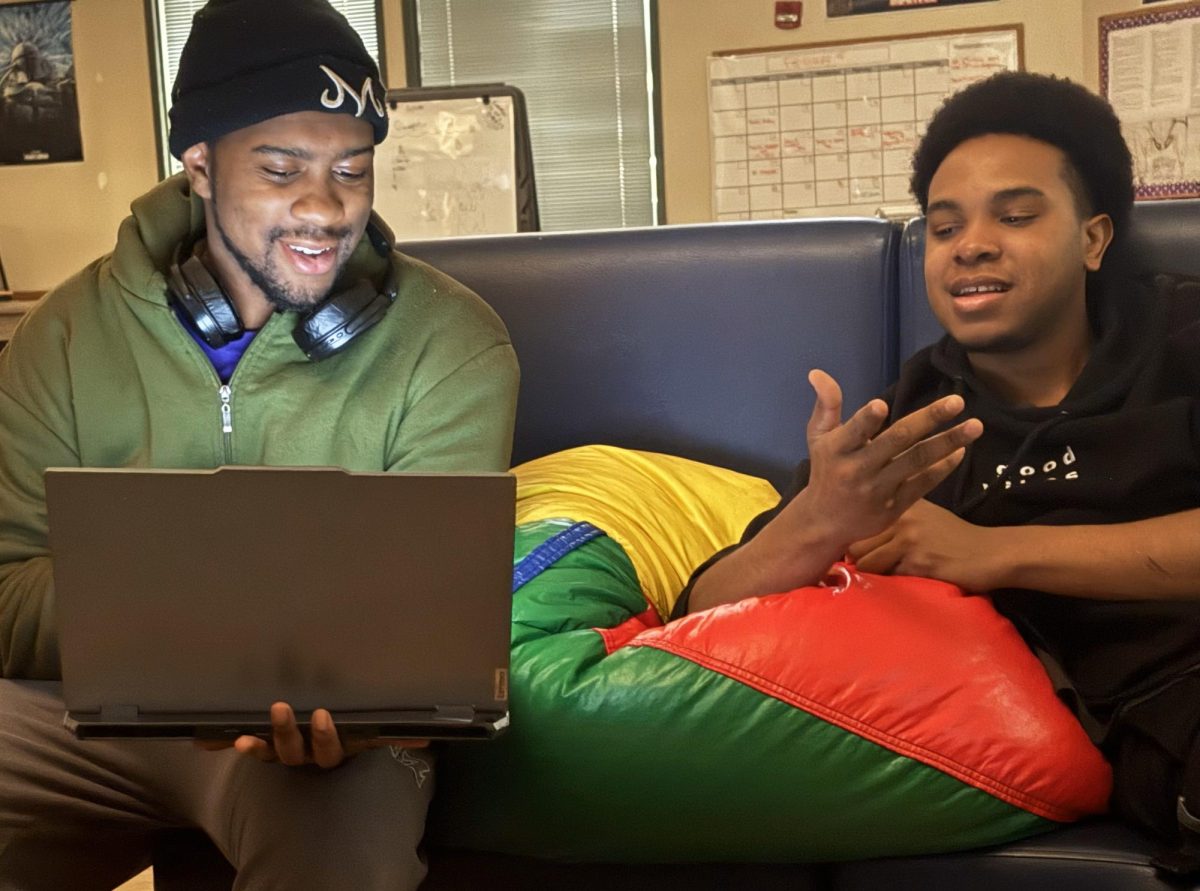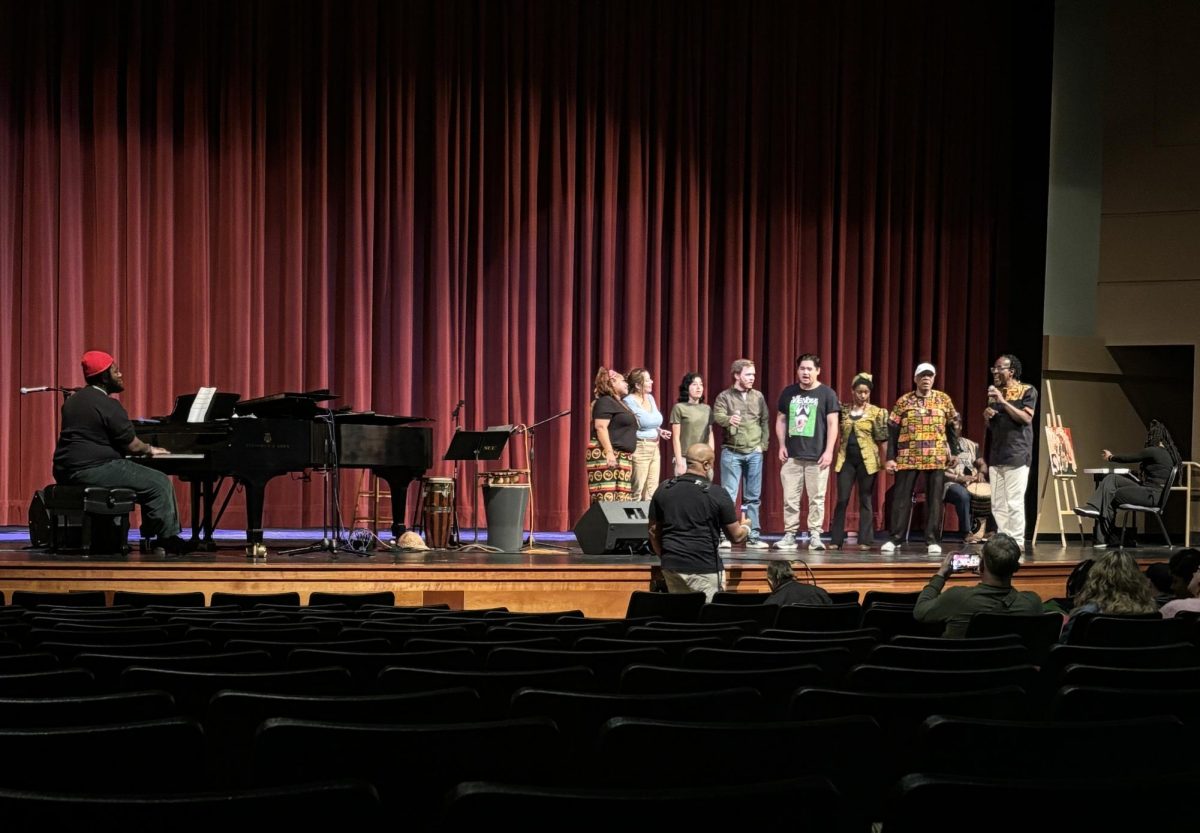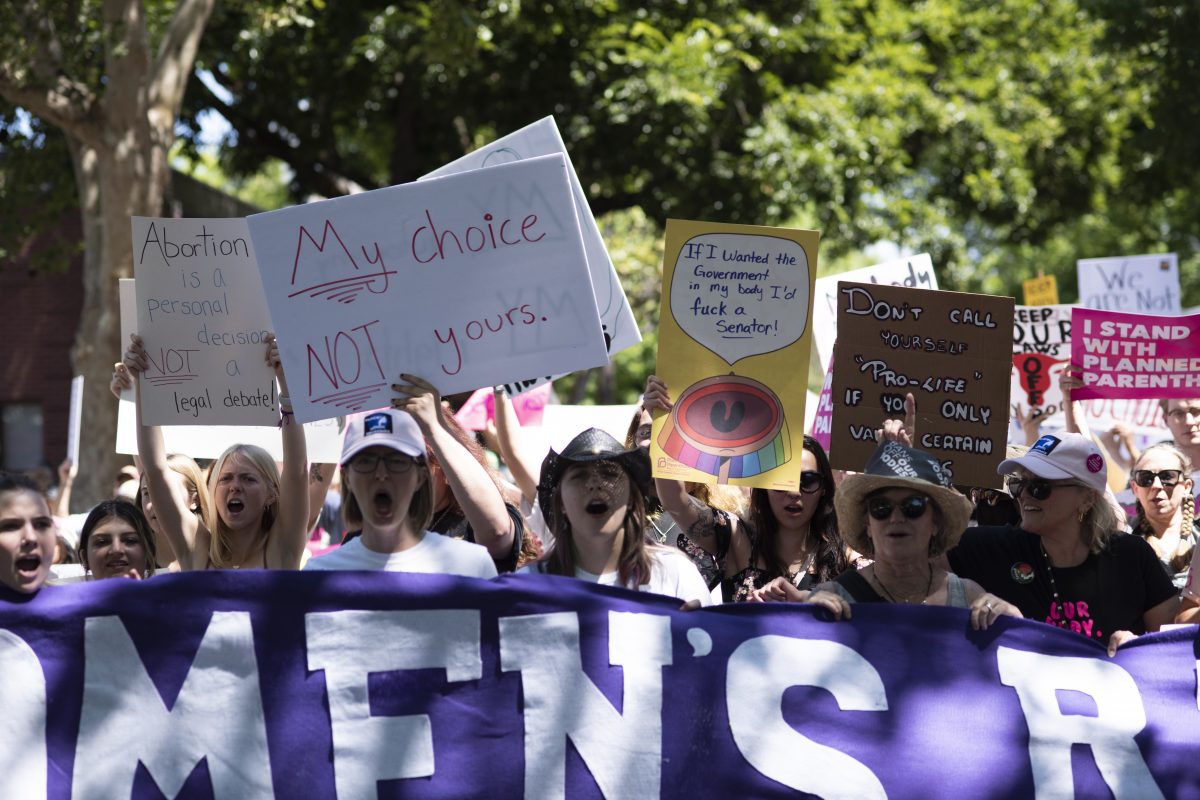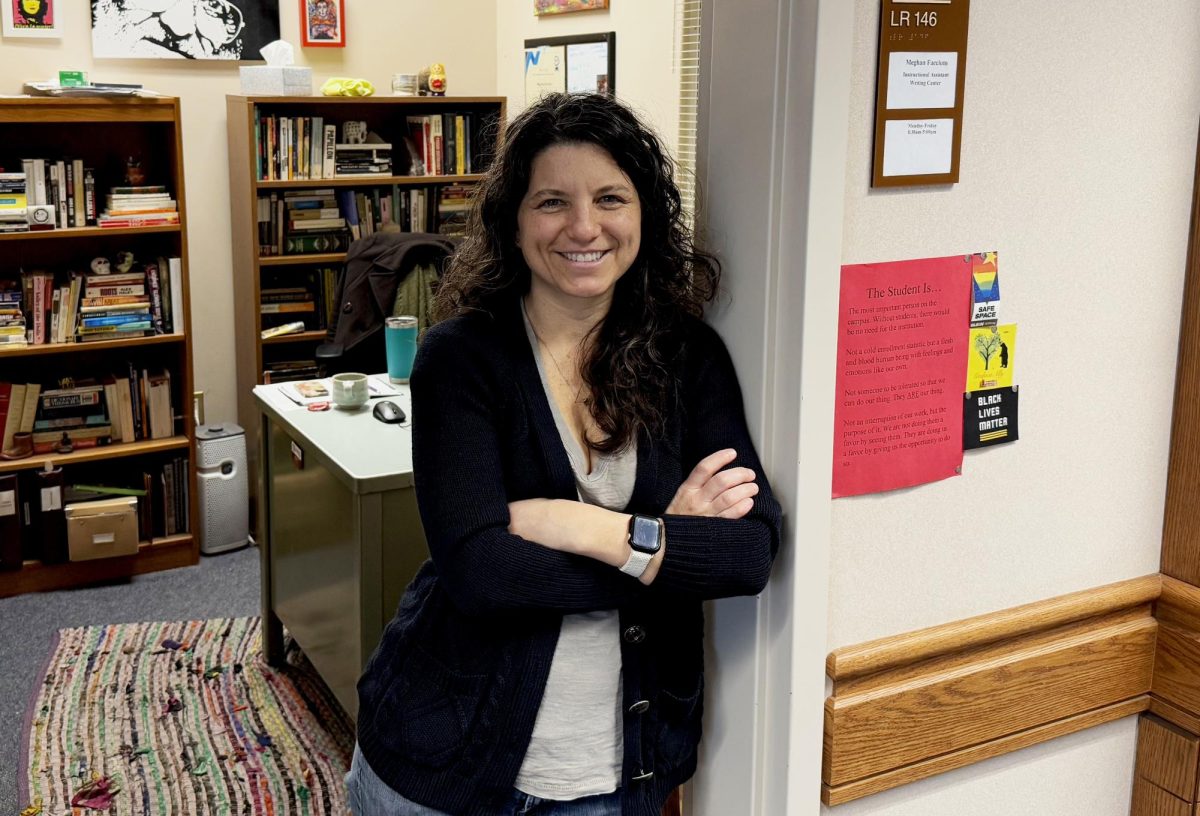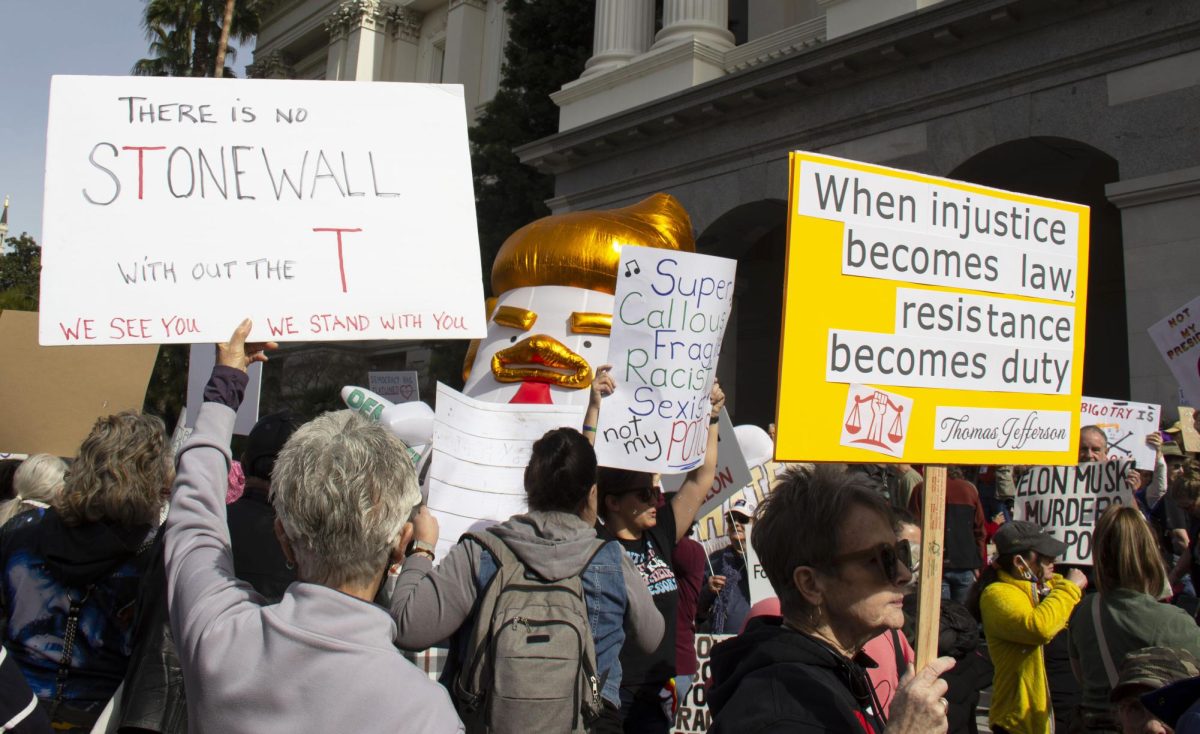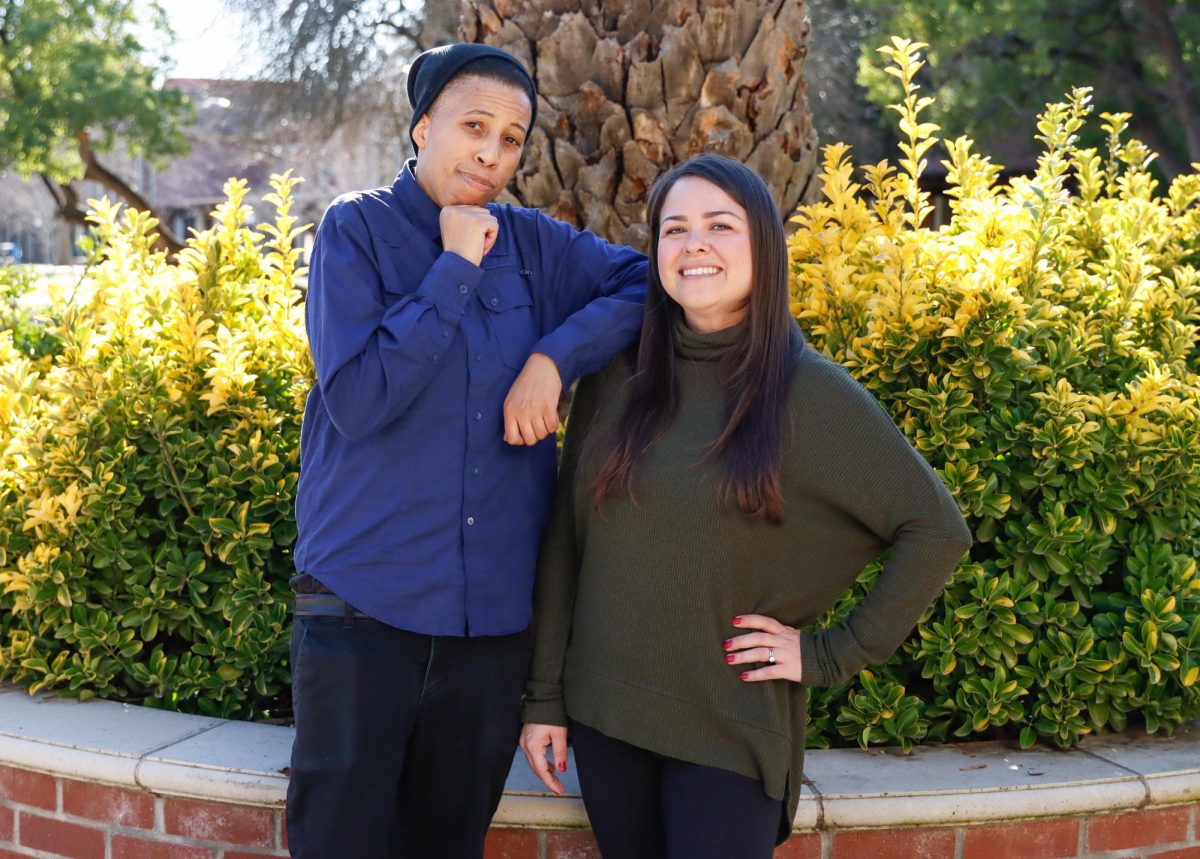“You trust me with a child, yet not a choice.” “No man should determine our reproductive rights.”
These were just some of the chants that echoed outside the Sacramento Capitol Building May 14 during a Bans Off Our Bodies rally. Several hundred supporters marched through the streets of Sacramento with the intention of bringing awareness to the public disapproval of Roe v. Wade possibly being overturned.
Decided by the U.S. Supreme Court in 1973, Roe v. Wade protects a woman’s right to choose to have an abortion without government interference or restriction. A recently leaked draft of a majority Supreme Court opinion suggests this protection is likely going to be revoked by the federal government and left up to states to decide.
Many states have trigger laws in place that would ban abortion if Roe v. Wade is overturned. The leaked draft by Supreme Court Justice Samuel Alito also includes reference to some state statutes, dating back to the 1800s, criminalizing abortion with punishments including prison time and large fines.
Kristine David, a sociology major at City College like many other abortion advocates, thinks plans to overturn Roe V. Wade has been in the works for decades. “I think they’re finally showing their hand. The fact that we elected a Democratic president doesn’t mean anything at this point. Republicans have already stacked the Supreme Court.”
National and even international outrage has followed the leak, with constant protests and rallies being held to raise awareness. Many states, including California, are working on own legislation to safeguard abortion rights. The public opinion has also been like-minded, with over 60% of Americans saying they believe abortion should remain legal. Students at City College are no exception.
“It has nothing to do with a moral compass, the people that think it does are just plebeians in this game,” said David. “It has to do with white supremacy, it has to do with money, it has to do with power, and that is it.”
During the Donald Trump presidency, three conservative Christian judges secured their lifetime seats in the highest court of authority, which made up a new majority of conservatives on the court.
Another of many concerns regarding this issue is the health of the pregnant person and not only prioritizing their safety but respecting their personal beliefs and situation. Many states will revert back to their own abortion laws, which in some cases leave no exemptions for rape or incest, and even seem to possibly criminialize abortion procedures to safeguard the health of the patient.
“My mom was a labor and delivery nurse and in a lot of situations she was delivering babies for girls probably 13 or 14 years old,” said Maddie Mabry, a City College student. “Some of them had mental illness, one of them specifically had Down syndrome and she was raped by her father. We’re not set up in our society to accommodate a baby that someone doesn’t want. Are we taking care of child support? Are we taking care of creating day care or anything past that? Do we make maternity leave a possibility for people? What about single parents? Stuff like that.”
Some faculty at City College also shared in their disapproval. Women and gender studies Professor Sheryl Fairchild pointed out how abortion is really just the tip of the iceberg when it comes to women’s reproductive health. “I see abortion as part of this larger picture of women’s reproductive rights and health,” she said. “It gets sort of picked out of that larger picture and fought over when really what we need to think about is the whole of women’s reproductive health.”
Fairchild said the conversation needs to address the root problem of women’s reproductive health over a lifetime in this country.
“Abortion is important but its a piece of this long development of women and I think that gets missing, that there is this larger picture of reproductive health, whether you’re a younger girl or an older woman.”
This potential repeal of Roe v. Wade has also created a sense of generational trauma for some people, with this court decision being threatened decades after it was passed.
“The other day I took my mom to a protest, and we figured out 30 years ago almost to the day, she took me to my first one and it was for the same thing. It obviously wasn’t overturned then, but it was still at risk. And the fact that we’re still having to do this,” David said, pausing to gather her emotions, “every phase of her life she’s been fighting for this over and over again.”
Fairchild also remembers when these rights were fought for and granted in the 1970s. “It feels like the clock is turned back and the new generation of women is going to have to fight over this again, and it’s incredibly disheartening,” she said.
She also said she believes the U.S. tends to isolate itself in terms of knowledge from other countries on the issue. “I think for me with so many issues in the U.S. we don’t look outside the U.S. for lessons,” she said. “These rights are happening or not happening all around the world and there’s lots of incredible lessons about that that we just don’t let into our discourse about it.”
As the weeks continue, the outrage of public opinion is not dwindling down. Sacramento’s Bans Off Our Bodies march and rally was just one of 400 planned nationwide. The overall message was to protect abortion access everywhere and change the overall conversation between women’s reproductive rights and policy.
“Old men make our choices, that’s the way our court system seems to be stacked. We need to make society more adapted to women,” Marby said. “It takes a shift in policy, it takes a shift in mindset, and in communication past just this one choice.”




